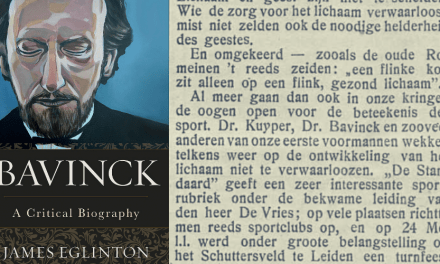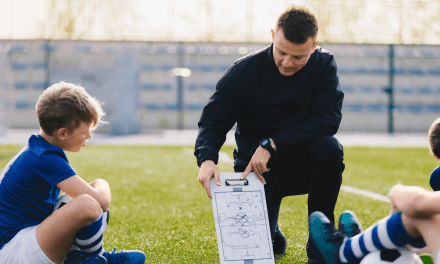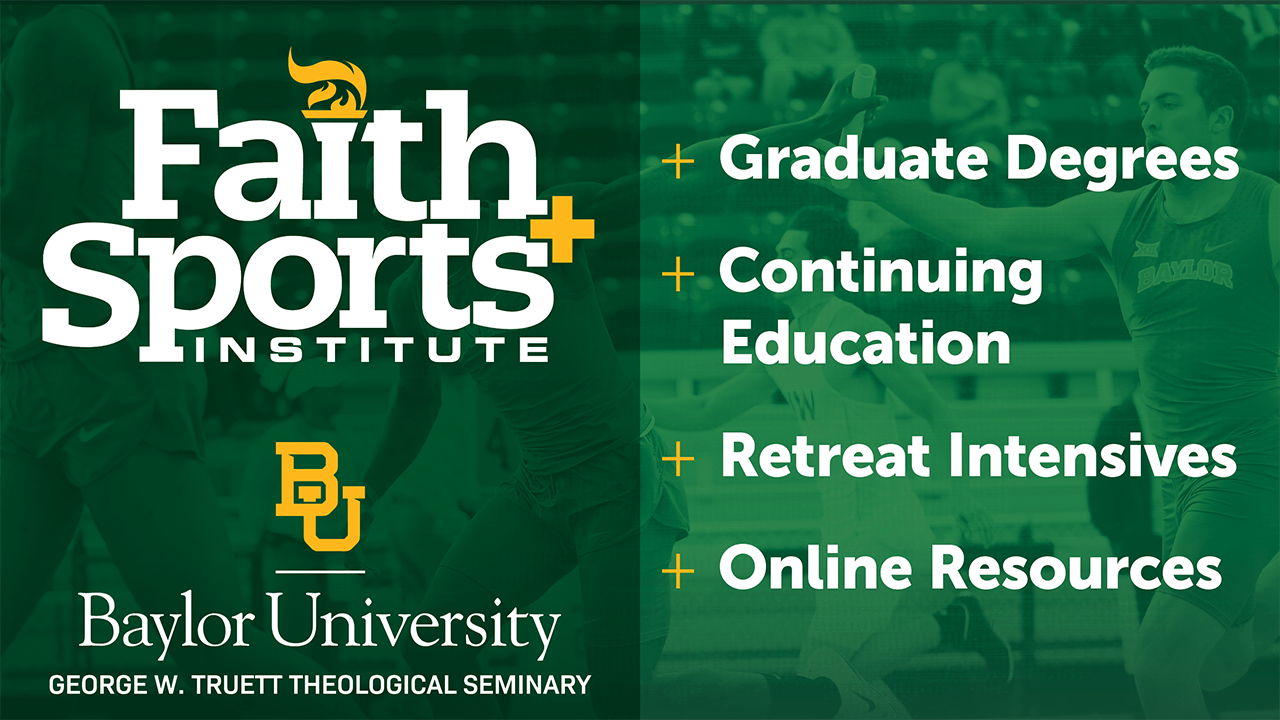Editor’s note: To help Christian sportspeople navigate these uncertain times, we will be publishing a series of posts focused on what it looks like to “Run The Race Well” in a time of coronavirus and quarantine. We will be getting contributions from a variety of perspectives: theologians, philosophers, athletes, coaches, mental health professionals, seminary students, and more. This post comes from Cindy White, a leader in the sports ministry world and Program Director for the Faith & Sport Institute.
Cindy White
I can still recall the scene vividly. I was at the 2012 London Olympics watching a theatrical production about Eric Liddell with two of Eric’s daughters, Heather and Patricia. The sold-out play packed an emotional punch—when I looked over I saw tears running down their cheeks as they were remembering their father. After the show, we walked into the common area where t-shirts were being sold. A young, handsome athlete named Lee asked what size he should purchase, and as we started talking, I introduced him to Liddell’s daughters.
He was floored.
“Eric Liddell changed my life!” he stammered through tears.
Lee went on to tell us about his troubled youth and how his mother back then was at her wit’s end, unsure of what to do. At some point she forced him to watch the movie Chariots of Fire. “Since then, my life has never been the same,” he told us. He ran to get his girlfriend and continued. “Even though I really wanted to run in the Olympics, meeting you (Liddell’s daughters) was better than winning a gold medal.” He then thanked Heather and Patricia for their father’s sacrifice.
So what happened to Lee? Why was he so drawn to Eric Liddell’s story? Many athletes have won gold medals. Many missionaries have sacrificed their lives for their faith.
Part of the answer lies with the power of the screen. Almost everyone alive in the 1980s remembers the award-winning movie Chariots of Fire (especially its famous beach-running scenes). Yet, before the movie came out, we didn’t hear much about Eric. Chariots of Fire recovered his story and turned Liddell into an icon and example for Christian athletes across the world.
Perhaps what shocked us most was his commitment to his faith above his sporting success. Liddell qualified for the 1924 Olympics, but voluntarily withdrew from the race he was favored to win (the 100-meter dash) because it was going to be held on a Sunday. Liddell had set that day aside for worship and rest. He refused to violate his conscience, even for Olympic gold.
But Liddell did not drop out of the Olympics entirely. He was allowed to enter the 400-meter dash, an event for which he had only recently begun training. Coming from behind, Liddell won the gold in dramatic fashion.
It was not just the movie and it was not just Liddell’s Olympic performance that made him compelling. Because Chariots of Fire sparked new interest in his story, people looked more deeply at his life. Authors researched and wrote new biographies and found new stories to share. They were especially drawn to his life after 1924, when Liddell shocked the world again by rejecting a life of fame as a sports hero. Instead, he chose to return to China (where he had been born to missionary parents) as a missionary himself.
“Sports were not a be-all, end-all, nor were they absolutely necessary to live a successful life,” his daughter Patricia has explained. “Even though the gold medal was wonderful, he did not need it to fulfill his purpose.”
This sense of purpose is what drew me to Liddell’s example. As a young Christian and D1 athlete, I suffered a career-ending injury, losing all hope to play in the Olympics. Liddell reminded me there was more to life than the gold, a brighter future than I could possibly imagine. He showed me how to compete with freedom and joy and also how to serve others in mercy and love. I wanted to embody everything he stood for in sports and in life.
I know that I am hardly alone in finding inspiration in Eric. The more people learn about him, it seems, the more they come to respect and admire his example. “When you knew him, when you walked with him, you wanted to be like him,” his daughter Heather has told me. “He represented the finest of the human spirit.”
Duncan Hamilton, one of Liddell’s most recent biographers, backs this up. “I wondered at the outset whether his saintliness had been exaggerated somewhat,” Hamilton told an interviewer. “I can assure you it wasn’t. He always put himself a distant second.” Liddell’s life, Hamilton concluded in his book, “encourages us to make our own lives better somehow.”
If you want to be inspired by Liddell’s example, too, there is no better time than right now, during this global pandemic. While there are certainly biographies that you could read, there’s also a movie you could watch: On Wings of Eagles, the sequel to Chariots of Fire. It gets its name from Isaiah 40:31, one of Liddell’s favorite verses:
but those who hope in the Lord
will renew their strength.
They will soar on wings like eagles;
they will run and not grow weary,
they will walk and not be faint.
The movie depicts Liddell’s post-1924 life as a missionary in China, where he taught science and organized sports in a boarding school. Following the Japanese invasion during World War II, the school was turned into an oppressive internment camp where hundreds of children were separated from their parents. Liddell had sent his wife and three young daughters back to Canada for safety, never to see them again. Meanwhile, he remained in China, continuing to love and serve in the same way he always had; a man of integrity under any circumstance. He died as he had lived, in whole-hearted surrender to God and service to man.
Watch the movie and you’ll see why Liddell’s example inspired me and so many others. But if you still need some convincing—if you’re still on the fence and need one more push—check out the testimony of two Baylor track and field legends, Todd Harbour (current coach) and Clyde Hart (recently retired after 56 years).
About the author: Cindy White has worked in sports ministry for 35 years. A former D1 athlete in volleyball, she has a master’s degree in biblical studies and leadership. She develops curriculum for global leaders in sports, and has traveled the world speaking at retreats and conferences, particularly in the areas of identity formation and mentoring in elite sports. She has also coauthored or contributed to three books related to sports and faith. Currently, she serves as the Program Director for the Faith and Sport Institute, and is committed to helping young people aspire to true greatness. She is also an adjunct professor at Truett Seminary, and facilitates ministry in Baylor Athletics.







